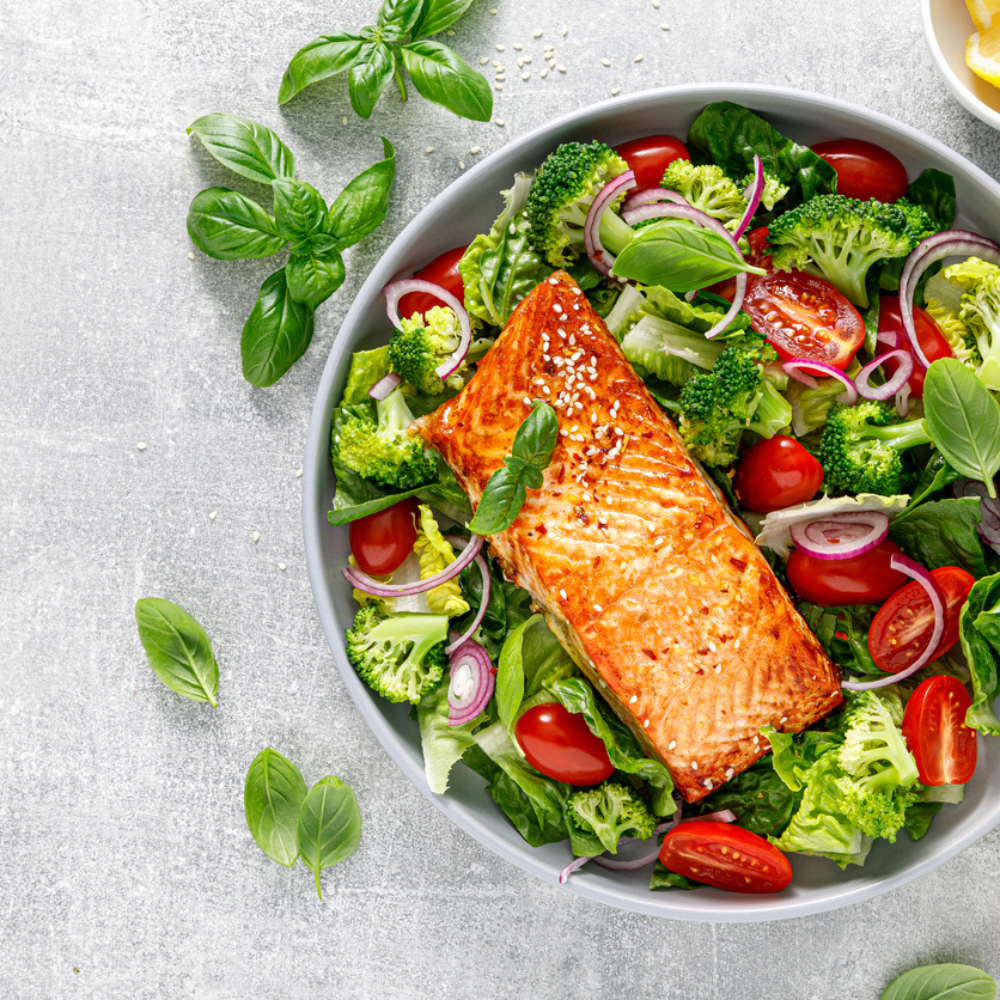
A creative writer with a voracious appetite for fashion, beauty,…
A
ttention Deficit Hyperactivity Disorder (ADHD) is a neurodevelopmental disorder often detected from childhood. Symptoms such as inattention, hyperactivity, and impulsivity often characterize ADHD. Although the main causes for this condition haven’t been confirmed, scientists agree that it could stem from genetic, environmental, or neurobiological factors or a combination of all three. While medication and therapy are popular treatment methods, it is advisable to incorporate a healthy diet to get maximum results. In this article, we’ll uncover the best foods to eat (and the ones to avoid) when dealing with ADHD.
The ideal ADHD diet includes whole foods like fruits, vegetables, lean proteins, and whole grains. Some studies also suggest that reducing sugar and processed foods, while increasing omega-3 fatty acids and antioxidants, may be beneficial. In essence, the best foods for individuals suffering from ADHD are those generally recommended by doctors for most people. This means you don’t need to worry about sacrificing taste or trying something your tastebuds may not be familiar with.
See the contributing factors to Attention Deficit Hyperactivity Disorder?
ADHD tends to run in families, suggesting a genetic component. Research indicates that certain genes involved in dopamine regulation and brain development may play a role in the development of this condition. Differences in brain chemistry and structure, particularly in areas of the brain involved in attention, impulse control, and executive function, have been observed in individuals with ADHD. These differences may affect the regulation of neurotransmitters such as dopamine and norepinephrine, which are involved in attention and impulse control.
In addition, prenatal and early childhood exposure to environmental factors such as maternal smoking, alcohol or drug use during pregnancy, low birth weight, lead exposure, and early childhood trauma may increase the risk of developing ADHD. Traumatic brain injury or other neurological conditions may also contribute to the development of the condition in some cases. Furthermore, premature birth and complications during birth have been associated with an increased risk of ADHD.
To put it simply, Attention Deficit Hyperactivity Disorder is a complex and multifaceted condition without a clear cause. Instead, it likely results from a combination of genetic predisposition and environmental influences. Additionally, the presentation and severity of ADHD symptoms can vary widely among individuals.
The ADHD diet
- Foods rich in omega-3 fatty acids, such as fatty fish (salmon, mackerel, sardines), walnuts, flaxseeds, and chia seeds, may support brain health and cognitive function, potentially benefiting individuals with ADHD.
- Incorporating lean protein, such as poultry, fish, eggs, tofu, legumes, and nuts, into meals and snacks can help stabilize blood sugar and promote sustained energy levels.
- Opting for complex carbohydrates with a low glycemic index, such as whole grains (brown rice, quinoa, oats), fruits, vegetables, and legumes, can provide steady energy and support brain function.
- Colorful fruits and vegetables are rich in vitamins, minerals, and antioxidants that support overall health and cognitive function. Aim to include a variety of fruits and vegetables in your diet to ensure a broad range of nutrients.
- Adding sources of healthy fats, such as avocados, olive oil, nuts, and seeds, to your diet can support brain health and cognitive function.
- It’s also important to stay well-hydrated by drinking water throughout the day. This is essential for optimal brain function and may help improve attention and focus.
- Eating regular, balanced meals and snacks throughout the day can also help maintain stable blood sugar and energy levels, which may benefit individuals with ADHD.
Note that individual responses to dietary changes can vary, and what works for one person may not necessarily work for another. Therefore, consulting with a healthcare provider or a registered dietitian who specializes in ADHD diet is a great choice since they can provide personalized guidance and support. Additionally, keeping a food diary to track how different foods affect symptoms can be helpful in identifying beneficial dietary strategies.
Check out the foods to avoid when dealing with ADHD

Some individuals with ADHD may find that certain dietary factors affect their symptoms. Foods high in artificial additives, preservatives, and artificial colors may exacerbate symptoms. These additives are commonly found in processed snacks, sugary cereals, and certain beverages. High-sugar foods and drinks can cause fluctuations in blood sugar levels, leading to energy crashes and increased hyperactivity or impulsivity in some patients. Some individuals with ADHD report sensitivity to artificial sweeteners like aspartame, which may exacerbate symptoms.
Furthermore, excessive intake of salty or high-sodium foods may contribute to mood swings and dehydration, potentially affecting ADHD symptoms. Individuals with ADHD may have sensitivities or allergies to specific foods, such as gluten, dairy, or food dyes. Identifying and avoiding these trigger foods can help manage symptoms. For example, while caffeine affects individuals differently, some people with ADHD may be particularly sensitive to its stimulating effects, leading to increased restlessness or difficulty sleeping. Monitoring caffeine intake from sources like coffee, tea, energy drinks, and certain medications, may be beneficial.
The relationship between diet and ADHD symptoms can vary among patients as not everyone will experience changes in symptoms based on dietary factors. Consulting with a healthcare provider or a registered dietitian who specializes in ADHD can provide personalized guidance on dietary strategies to manage symptoms. A food diary can also come in handy as it can be used to track how different foods affect symptoms, resulting in a practical way to identify potential triggers.
Featured image: YelenaYemchuk/iStock
Medical Disclaimer
All content found on the StyleRave.com website, including text, images, audio, video, and other formats is created for informational purposes only. The content is not intended to be a substitute for professional medical advice, diagnosis, or treatment. If you think you may have a medical emergency, please call your doctor, go to the nearest hospital, or call 911 immediately depending on your condition.
For the latest in fashion, lifestyle, and culture, follow us on Instagram @StyleRave_
—Read also
A creative writer with a voracious appetite for fashion, beauty, lifestyle and culture. As one who's passionate about the advancement of the woman, creating content that inspire smart style and living, and positive lifestyle changes is a calling I take seriously. At Style Rave, we aim to inspire our readers by providing engaging content to not just entertain but to inform and empower you as you ASPIRE to become more stylish, live smarter and be healthier. Follow us on Instagram @StyleRave_ ♥







